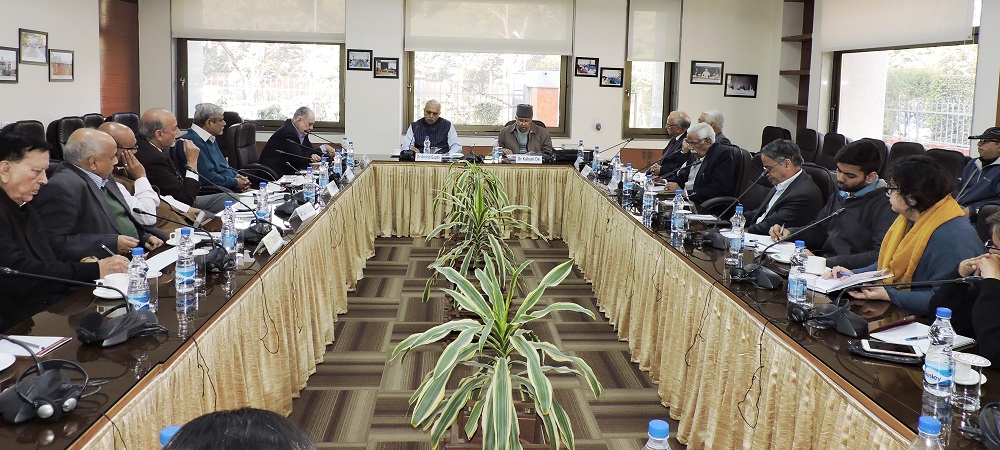On 10 February 2017, Dr. Kalyan De, a US-based Netaji enthusiast and engineer by profession, delivered a refreshingly insightful talk on Netaji Subash Chandra Bose’s inimitable contribution to India’s freedom struggle. Quoting extensively from the UK’s official archive, De made out few interesting observations about the events that shaped India’s freedom movement, especially after the conclusion of the Second World War. An interesting Q&A session followed the talk.

Contrary to the established perception, Dr. De argued that the ‘Quit India’ movement was never entirely the Congress’ or Gandhi’s show. Even while Netaji had escaped to Germany, he continued to play a dominant role in the conduct of ‘Quit India Movement’. He further argued that crucial facts relating to India’s freedom movement were either willfully suppressed or at best, never made public, leaving room for leaders like Gandhi and Nehru to acquire larger-than-life images in the people’s perception. He also said that Subash Chandra Bose, who was truly instrumental in forcing the British to quit India, did not get due share of recognition even in school textbooks.
Perhaps the most appropriate assessment of the role of the leaders of the freedom struggle such as Mahatma Gandhi and Netaji came from none other than Britain’s former Prime Minister Clement R. Atlee, during whose tenure India got her independence. The famous Indian National Army (INA) Officers’ trials, as stories of their courage and heroic deeds began to find place in newspapers, evoked huge public sympathy and admiration across India. With revolts taking place among Indian soldiers in service with the British military, the assessment was that British could not rely on defence forces for the preservation and protection of the British regime in India. Atlee pleaded that under these circumstances it was advisable and desirable for the British to withdraw from India with grace. Thus, the assessment of the glorious role played by Subash Chandra Bose in the freedom struggle was appropriately appreciated by the highest executive of the British Government. De alluded that Mahatma Gandhi perhaps got more than his due share of recognition at the cost of other leaders.

Dr. Kalyan De, however, was generous to recognise Mahatma’s other qualities which endeared him to the masses – love for humanity, compassion etc. Among other contentious observations made by Dr. De, he stood for splitting the title of ‘Father of the Nation’ between two leaders of equal stature – Mahatma Gandhi as ‘Spiritual Father of the Nation’ and Netaji as ‘Liberating Father of the Nation’, a contention that didn’t find favour with the audience. While showing appreciation for Dr. Kalyan De’s academic endeavor to bring new facts about Netaji to life and putting India’s freedom struggle in an entirely new perspective, the audience broadly consented with the view that distortions which have crept into text books over the years need to be gradually weeded out, while historical facts pertaining to India’s freedom movement need to be brought to light in an unbiased manner.




